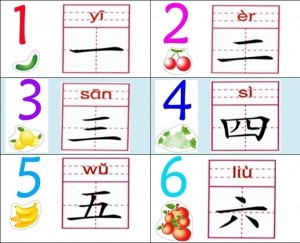Mandarin Chinese is the most spoken language in the world. But it is also one of the toughest languages to learn if you are not a native speaker or did not have early exposure to the language and culture. Accidents, such asking for a kiss instead of a question might occur. Regardless, the demand for Chinese translation and interpreting services continues to increase.
A Kiss or A Question | Training Your Ear
Understanding the characteristics and nuances of Mandarin is key to becoming an excellent Chinese-English interpreter. One of the most basic characteristics of Mandarin is that it is a tonal language, which means that many words have the same pronunciation but are produced at different pitch levels. To the untrained ear, it sounds like a song. To a native Mandarin speaker, you may be saying something like, “Wǒ xiǎng wěn nǐ,” “I want to kiss you,” instead of, “Wǒ xiǎng wèn nǐ,” which means, “I want to ask you a question”!
A Kiss for a Question
One of the best ways to avoid asking for a kiss instead of a question is to learn the tones by using Mandarin tongue twisters. These comical sentences are also used in schools in China when children are learning to read, write, and speak Mandarin; ask anyone in China and they’ll know what you’re talking about.
It’s a great way to have fun but also learn the differences between characters and tones. For those aspiring to become interpretation or translation services providers, these subtle but important differences pave the way for either a great name in the industry or an incompetent one.
Mom or Horse?
Take a look at this first example:
Traditional: 媽媽 騎 馬. 馬 慢, 媽媽 罵 馬.
Simplified: 妈妈 骑 马. 马 慢, 妈妈 骂 马.
Pin Yin: māmā qí mǎ. Mǎ màn, māmā mà mǎ.
Word for: Mom ride horse. Horse slow, mom scold horse.
Translation: Mom is riding the horse. The horse is slow, so mom scolds the horse.
The pronunciation “ma” is used for the words mom (妈妈), scold (骂), and horse (马). However, each one is pronounced with a different tone. “Mom” is pronounced using first tone (mā), “horse” with third tone (mǎ), and “scold” with fourth tone (mà). Tones drastically change the meaning of a word, so be careful of what pitch is being used; calling anyone’s mom a horse would be an unforgivable insult!
Tongue Twisters

This next example trains speakers’ oral muscles to make both consonantal and vocalic sounds whether in combination or as stand alones.
In addition to pronunciation practice, it serves as a way to practice tones. Just as the previous example, similar pronunciation with different tones changes the meaning drastically.
Simplified: 四是四, 十 是 十, 十 四 是 十 四, 四 十 是 四 十, 四十 四 是 四 十 四,
Pin Yin: sì shì sì, shí shì shí, shí sì shì shí sì, sì, shí shì sì, shí, sì shí sì shì sì shí sì,
Translation: 4 is 4, 10 is 10, 14 is 14, 40 is 40, 44 is 44,
四 不 是 十, 十 不 是 四, 十 四 不 是 四 十, 四 十 不 是 十 四.
sì bú shì shí, shí bú shì sì, shí sì bú shì sì shí, sì, shí bú shì shí sì.
4 is not 10, ten is not 4, 14 is not 40, 40 is not 14.
Tongue twisters are a great way to showcase the characteristics of any language and are easily accessible through a simple search on the internet. They bring attention to subtle differences and nuances that language learners may not otherwise see. More importantly, they’ll save someone from asking for a kiss instead of a question!
About Language Connections:
Language Connections is one of the top language service companies in the US. Over the last 30 years, we’ve focused on providing the best business translation services, interpreting services, as well as interpreter training and customized language training programs. In addition to top-tier corporate language training, we offer certified corporate interpreters and professional business translation services in 200+ languages. Our network includes linguists with backgrounds in all major industries. They’re ready to meet your needs, whether they’re for technical translation services, legal translation, government translation services, international development translation services, education translation services, life sciences translation, or something else. Reach out to us today for a free quote on our cost-efficient and timely translation services, interpreters, or other linguistic services.
Language Connections Inc.
2001 Beacon Street, Suite 105,
Boston, MA 02135
Phone: +1-617-731-3510
Email: service@languageconnections.com



